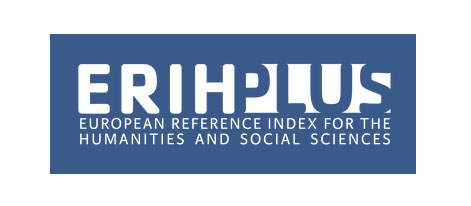Print ISSN: 0334-4118
- Articles Selection and Review Process
-
Interested authors are encouraged to submit their articles to the editor for inclusion in JSAI. Although the majority of papers published in JSAI are in English, it is possible to submit articles in other languages as well (e.g., Arabic, French, German). Articles must be accompanied by abstracts (200 words max) and 5-7 keywords. Both abstracts and keywords must be in English. More details about paper submission and guidelines can be found on our Guidelines for authors page.
Originality
Only original research is accepted by JSAI for publication. Authors assume full responsibility for the content of their papers and research. Papers submitted for consideration in JSAI should not be submitted elsewhere until the evaluation process is complete.
Plagiarism and Research Fraud
JSAI reviews and scrutinizes submitted articles for plagiarism and copyright infringement. In case of suspected plagiarism, we will follow COPE’S guidelines.
Peer Review Process and Policy
Submissions are first checked by the editors and executive editor to see if they fall within the scope of JSAI. If the submitted paper falls outside the scope of the journal, a prompt “desk rejection” will be issued. If the paper falls within the scope, it is further submitted to peer review, which usually takes between three to four months. We use double-blind peer review which means that the identities of authors and reviewers are unknown to each other throughout the process. Usually, two external reviewers are asked to read and evaluate the submitted paper; if needed, a third and even fourth reviewers are asked to evaluate the paper.
In order to avoid conflicting interests, editors and reviewers should consider such potential conflicts before agreeing to evaluate a submission. Any queries regarding this issue should be sent to the executive editor (msjsai@mail.huji.ac.il).
This rule applies to all editors, board members, and reviewers, so as not to impede or impact the objectivity and neutrality of the peer review and academic publication process.
At the end of the review process, the editors will notify authors whether their paper was accepted for publication, accepted pending revision, or rejected. The evaluation and comments will be delivered to the authors anonymously.
Authors who were requested to submit a revised version of their paper should send along a letter explaining the changes regarding the reviewers’ comments and suggestions. An accepted paper will be published usually within a year.
- Publication Ethics and Malpractice Policy
-
Research integrity and proper conduct are of the utmost importance to JSAI, being part of the Hebrew University regulations in research. We aim to adhere to the core principles of publication ethics as articulated by the Committee on Publication Ethics (COPE). Please visit COPE’s resources on their website for further details.
All manuscripts and supporting files (including interviews, images, data, infographics, etc.) should conform to the standards of ethical behavior promulgated by COPE.
In case of suspected misconduct, JSAI Editorial Board will consult COPE and HUJI resources in order to address and remedy the issue.
Authors must submit only their own original research and properly acknowledge and cite all sources. Grants and funding should be fully and clearly acknowledged.
For further clarifications or specific details, please contact us directly at msjsai@mail.huji.ac.i
- Corrections and Retractions
-
Despite the combined efforts of authors and editors, errors that need correcting sometimes appear in the published paper. In such cases authors and editors are to work in cooperation in order to publish the correction as soon as possible, usually in a Corrigendum in the following issue. The Corrigendum will also be attached to the original paper.
JSAI Editorial Board will consider retracting papers in cases where there is clear evidence of:
Intentional data fabrication or falsification Plagiarism (including research that was previously published without proper credit and permission) Intentional data fabrication or falsification Plagiarism (including research that was previously published without proper credit and permission)- Intentional data fabrication or falsification
- Plagiarism (including research that was previously published without proper credit and permission)
- Unethical research
- Manipulation of peer review process
- Failure to disclose major conflicting interests
In such cases, we will follow the retraction rules articulated by COPE.
- Publication Fees
-
JSAI does not charge submission fees, publication fees, or page charges.
Authors wishing to publish any figures, tables, or diagrams in colour should consult the Executive Editor. - GDPR (General Data protection Regulation)
-
JSAI complies with EU GDPR regulations, in accordance with HUJI regulations.
- Print Volumes and E-Prints
-
Authors will receive one free print copy of the journal and an e-print of their contribution. Authors are entitled to purchase additional copies at a discount price.
- Copyrights
-
No part, article or book review, etc. may be reproduced or used in any manner whatsoever without the express written permission of the publisher, the Max Schloessinger Memorial Foundation, excluding the use of brief quotations in a book review.
Indexing and abstracting
Jerusalem Studies in Arabic and Islam (JSAI) is indexed by the following services:

|
||||||

|
 |
 |
||||

|
 |

 Subscribe
Subscribe
